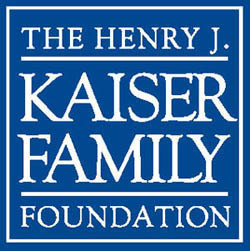New Kaiser Foundation Poll Finds Americans Uncertain on Health Reform Impact
by
Astrid Fiano, DOTmed News Writer | April 26, 2010

People may not know
what's in health reform,
but they have strong opinions
The Kaiser Family Foundation has released the results of a new poll measuring public attitudes toward reform, the first Kaiser poll since the passage of the health care reform laws last month.
While most Americans (81 percent) report they are aware of the new law, more than half feel they do not have enough information to evaluate the impact of reform personally, and more than half are also confused regarding the law. The provisions most recognized include the individual mandate, the allowance of children under 26 to remain on parents' insurance, and subsidies for lower-income persons. The least recognized provisions include prohibition on insurance companies charging women higher premiums, requirement that insurance companies who spend too little on medical costs vs. administrative costs to provide rebates to consumers, and closing the Medicare doughnut hole gap.
In overall opinion on the health reform law, 46 percent felt very favorably, 40 percent unfavorably, 23 percent somewhat favorably, 10 percent somewhat unfavorably and 14 percent undecided. However, on approval of certain provisions, the numbers were dramatic. Small business tax credits had 86 percent favorability, requiring insurance plans to have basic preventive services had 82 percent, and provisions to make dropping sick persons from coverage more difficult had 81 percent.
The poll found differing views on impact. Most thought the uninsured, low-income persons, and those with pre-existing illnesses would be better off with the reform. For the nation as a whole, 45 percent thought it would be better off. The numbers also correlated to party lines. Sixty-five percent of Republicans felt they would be worse off under the law and only 7 percent thought they would be better off, where 50 percent of Democrats thought they would be better off and 8 percent felt they would be worse off.
Two other interesting findings were that those polled were more confused than angry in terms of describing what emotion they did or did not have with regard to health reform (56 percent to 30 percent, with 45 percent pleased and 45 percent disappointed), and that the most important source of information regarding health reform law are cable news networks.
The Kaiser Family Foundation poll may be found at: http://www.kff.org/kaiserpolls/upload/8067-F.pdf
